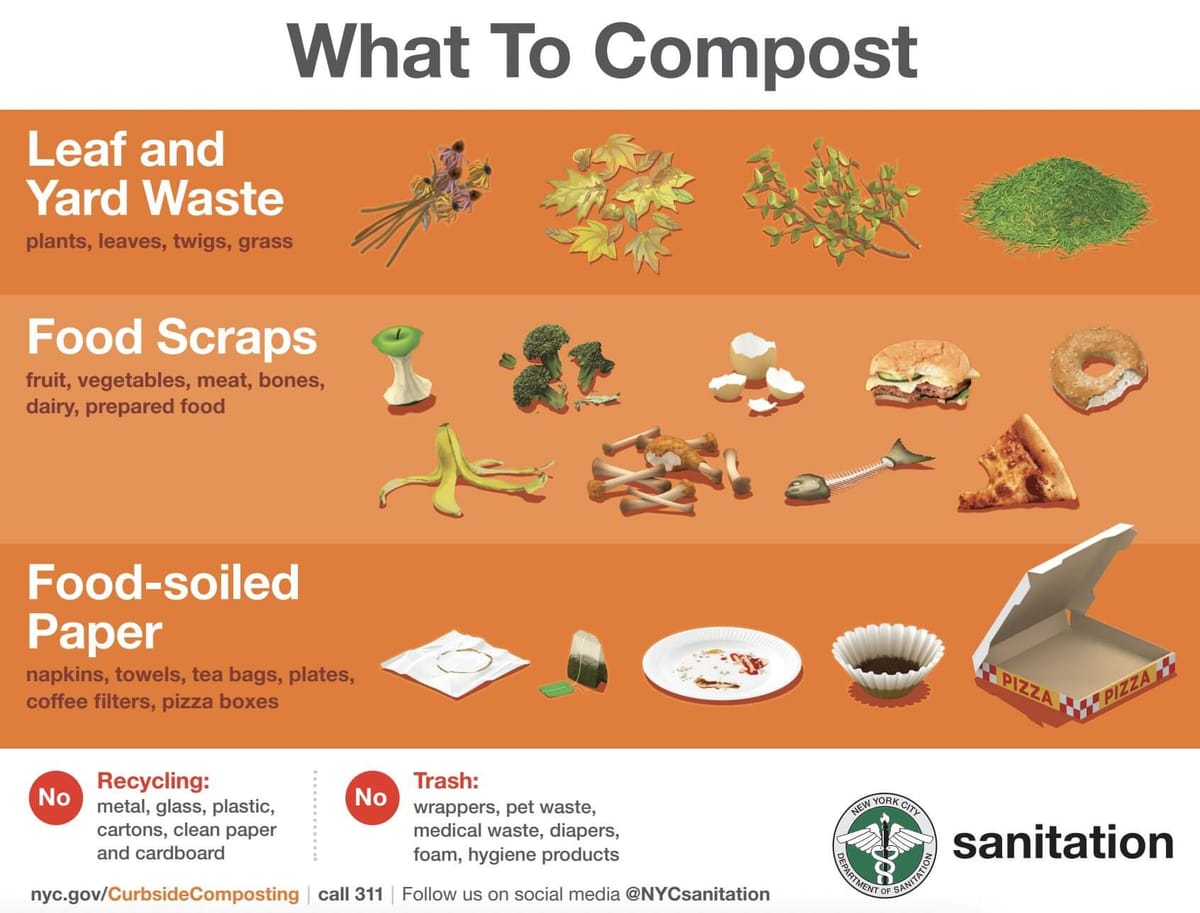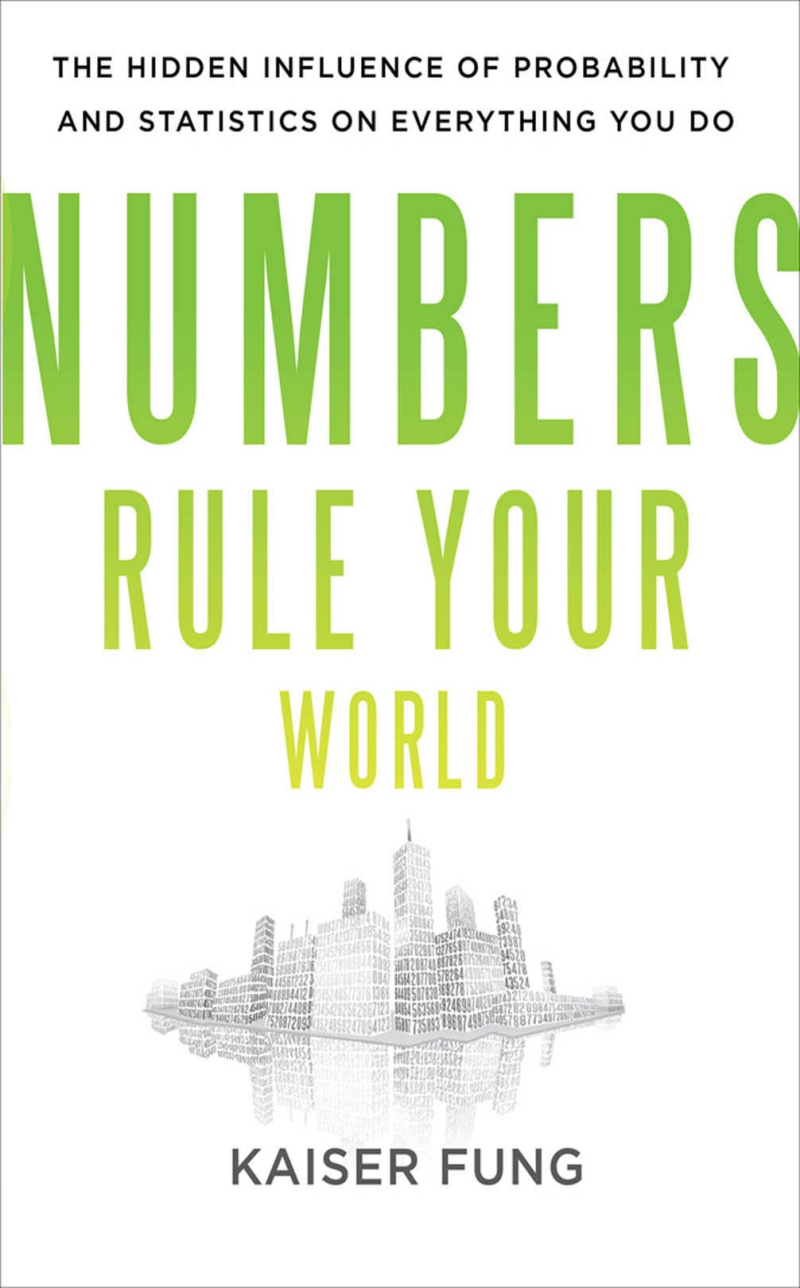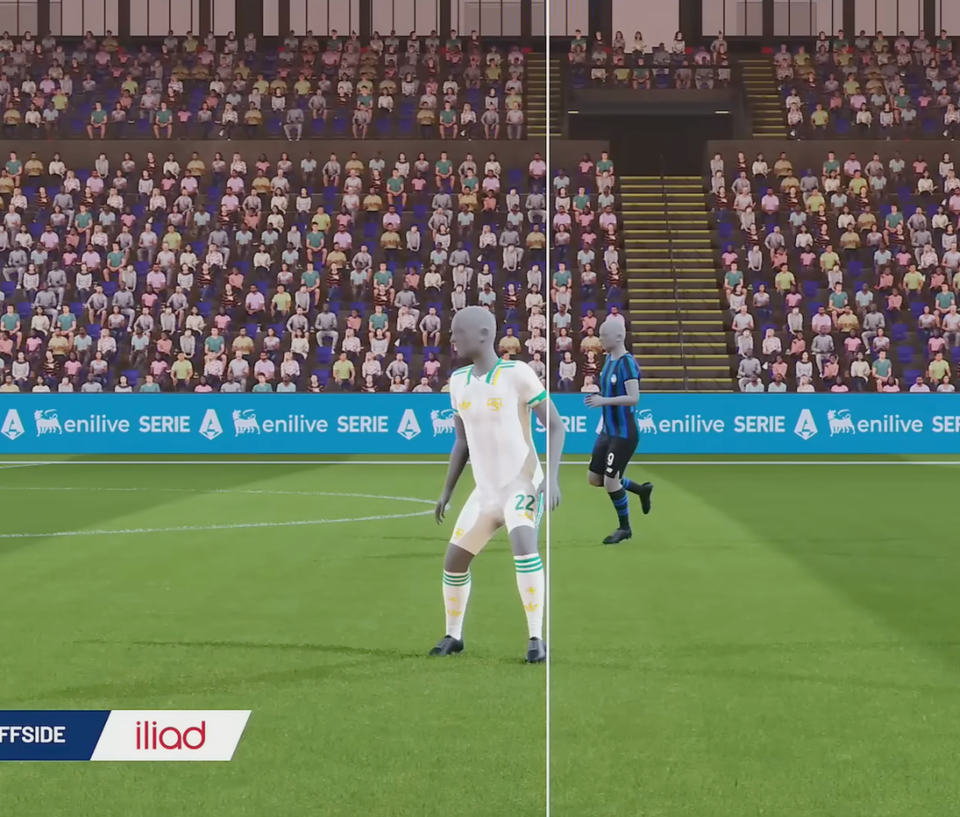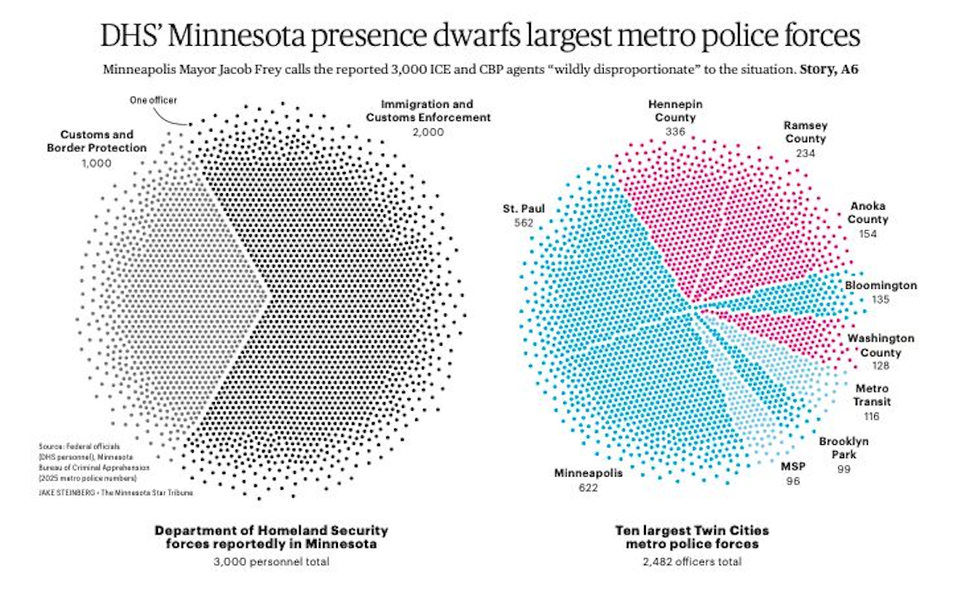The new NYC composting law
The NYC composting law went into effect


On April 1, New York City rolled out a composting law for residential buildings. Residents must separate compostables such as soiled paper and food remnants, and place them in special compost bins. Building owners will get fined if they don't follow the law.
Doing my part, I started putting things in a compost bag. I didn't expect the learning curve. For each piece of soiled material, I have to figure out if it's paper or plastic, or both; and whether it belongs to the compost bag or not.
Then I wondered how the inspectors decide what constitutes a violation.
Do they consider both the following offenses?
- Putting non-compostable items into the compost bag (false positives)
- Putting compostable items into common trash (false negatives)
***

This decision problem is similar to those covered in Chapter 4 of Numbers Rule Your World (link).
One consideration is the potential harm of each type of error. If having non-compostables ruins the compost process, then the cost of false positives is high. The cost of false negatives is a smaller amount of compost, which feels like a lesser harm, given the prior state of no composting.
Another consideration is prevalence. That in turn depends on what proportion of household waste is compostable.
Textbook analysis then takes these two factors and create an expected value of harm. In my book, I bring up other important considerations.
Yet another consideration is the cost of inspection (thus, the discoverability of the error). Looking for false positives involves digging into compost bags while looking for false negatives requires searching through the common trash. The latter seems far more onerous; I doubt they would spend the time to do it.
If the inspectors focus on uncovering false positives, then those errors become more visible. In my book, I illustrate this using steroids testing of elite athletes. A false negative is when a doper receives a clean test. Will we ever find out about a false negative? Is the doper going to announce that the anti-doping lab screwed up?
Because the testers don't get into trouble for missing dopers but do get a lot of negative publicity for falsely accusing an athlete of doping, one should expect that they should err on the side of minimizing false positives, which leads to more false negatives. In the case of composting, if those inspectors are more concerned about false positives, then we may get away with throwing some compostable items into the common trash.
Given these considerations, I'd err on the side of more false negatives. That is to say, I should put things into the compost bag only if I'm highly certain they are compostable.
I'm not really sure how the inspection works. Anyone who knows, please make a comment.
***
In the meantime, the city has already issued thousands of violations (link), but the penalty is laughably small ($25-100 per ticket).



